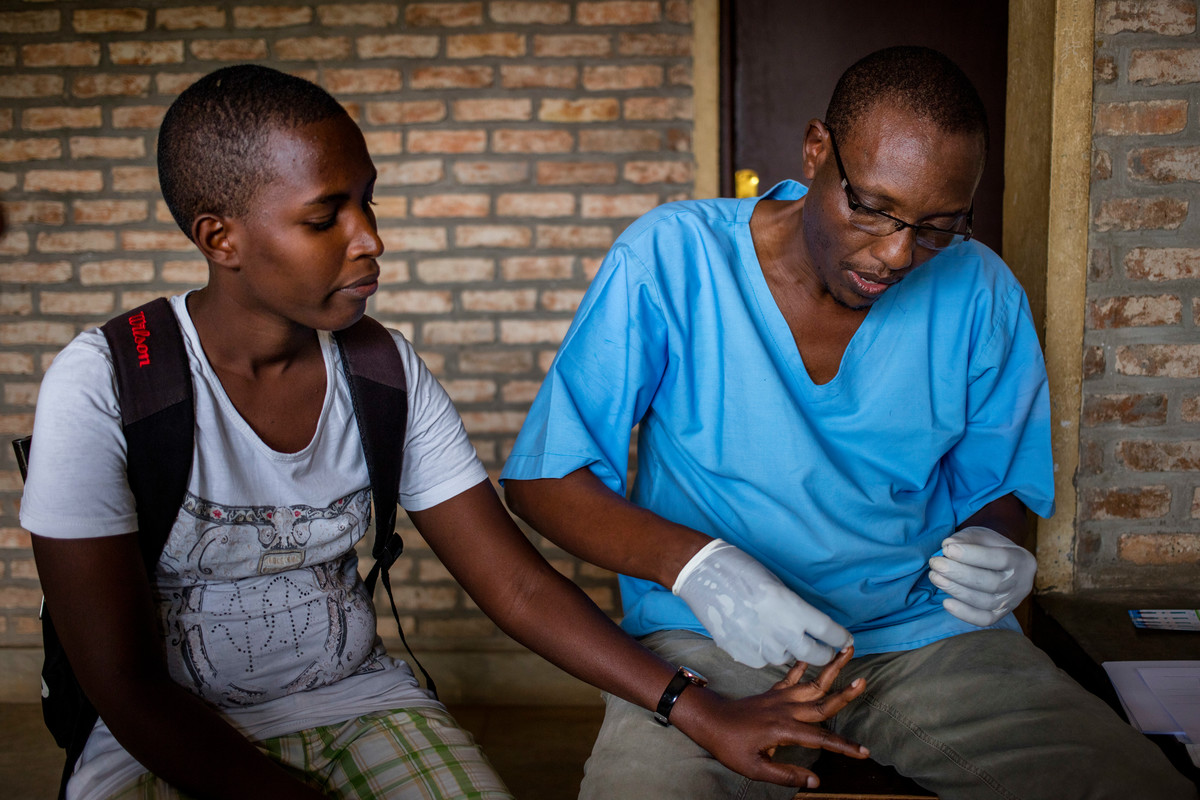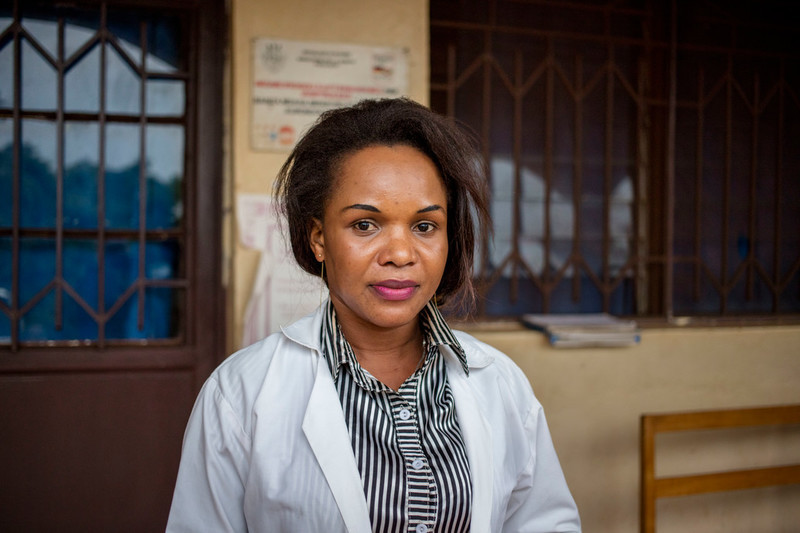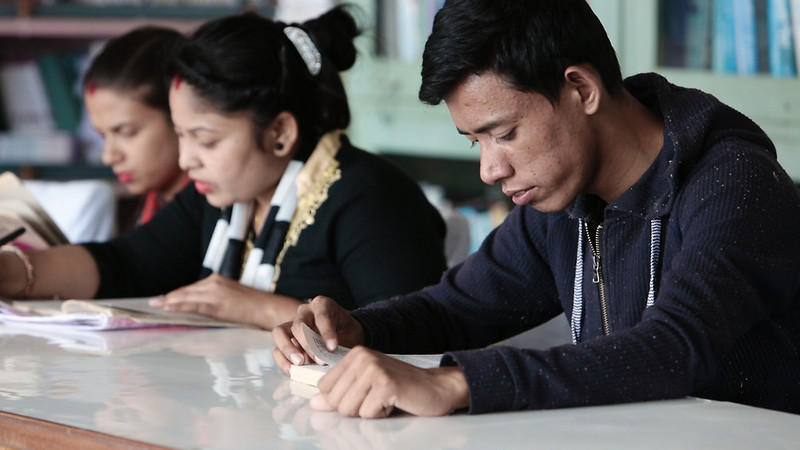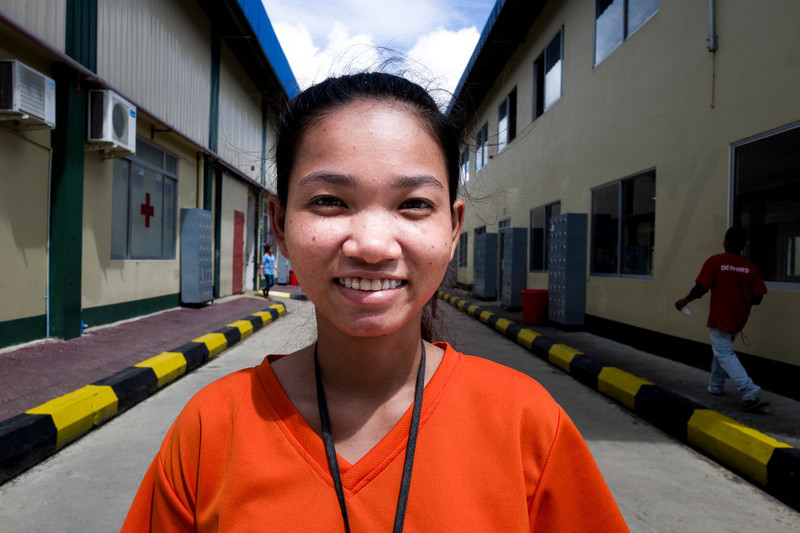
One of our main priorities is to ensure universal access to, and informed use of effective contraception. Millions of people lack the knowledge and information to determine when or whether they have children, and they are unable to protect themselves against sexually transmitted infections (STIs).
Articles by Contraception

Myth-busting facts about the contraceptive injection
Watch this short animation to learn more about the contraceptive injection, a contraceptive method that requires no daily action and doesn't interfere with sex. Learn more about other methods
TAKING STOCK: IPPF Recommendations on the Global Financing Facility (GFF)
The Global Financing Facility (GFF) is a financing mechanism in support of reproductive, maternal, newborn, child and adolescent health launched in 2015. This IPPF briefing sets out recommendations for GFF stakeholders and financiers as the GFF undergoes its first replenishment process.

The Global Gag Rule: The impact in Burundi
Burundi is landlocked between Democratic Republic of the Congo, Rwanda, and Tanzania. Of the estimated 10.72 million population, 67% live below the poverty line. Association Burundaise pour le Bien-Etre Familial, (ABUBEF) set up in 1991, provides a range of essential services, with a strong focus on HIV. Around 84,000 people are living with HIV in Burundi, of whom 12,000 are children under 14. ABUBEF’s focus is on HIV prevention and management: from youth-friendly counselling to programmes to prevent mother-to-child transmission. The withdrawal of US funding due to the Global Gag Rule will drastically reduce and, in some instances, close ABUBEF’s vital healthcare services and programmes. It is estimated that loss of funding to ABUBEF through the global gag rule will deny 117,016 people access to safe, sexual and reproductive healthcare. ABUBEF currently supports around 2, 123 people with anti-retroviral treatment, who will be affected by the cuts. Donavine Uwimana, Executive Director of ABUBEF, “The GGR affects our very existence, with a forecasted funding cut of 39% in 2017 as well as a major decline in the supply of almost all sexual and reproductive health and HIV commodities.” ABUBEF provides services to a range of clients including people living with HIV such as pregnant women, internally displaced persons and sex workers. The impact through funding losses affects service provision – including safe delivery for HIV-positive women, and a reduction in medical staff and drugs and commodities available. IPPF is trying to find alternative funds to fill the gaps – a combination of long- and short-term measures to avoid closures and reductions in services. Donavine explains how far-reaching the impact is for ABUBEF: “Almost all contraceptives, HIV reagents, STI drugs, antiretroviral and consumables for HIV management are procured through UNFPA, USAID and US-financed government programmes, which will be affected by the GGR,” she says. IPPF visited several ABUBEF run projects at risk of closure across Burundi that included a centre in Kirundo for vulnerable women such as sex workers and survivors of gender-based violence. And in Ngozi, an HIV clinic that provides mobile clinics, and a maternity ward with a focus on the prevention of mother-to-child transmission. Learn more about the Global Gag Rule Help us bridge the funding gap

Putting people first: providing health care despite funding and staff losses in Burundi
The Association Burundaise pour le Bien-Etre Familial's (ABUBEF) provides vital integrated services to local communities, including contraception, prevention and treatment of HIV, youth-friendly counselling and education, pre-marital counselling, and antenatal and post-natal care. ABUBEF has 18 service points, including static and mobile clinics, and community-based services. An estimated 80% of its clients are poor, marginalized, socially excluded and/or under-served. ABUBEF supports young people living with HIV, internally displaced persons, sex workers, drug users and street children. The continuation of many of these vital health services are under threat following the reintroduction of the Global Gag Rule by the US Administration. The Global Gag Rule, or Mexico City Policy as it is formally known, stops US aid to all health programmes run by organisations who perform or counsel on abortion. ABUBEF says: “Almost all contraceptives, HIV reagents, STI drugs, antiretroviral and consumables for HIV management are procured through UNFPA, USAID and US-financed government programmes, which will be affected by the Global Gag Rule.”
Myth-busting facts Female Condom
Learn more about the Female Condom, the only female-controlled contraceptive method that protects you against unintended pregnancies and STIs. The video is also available in Spanish

Launch of first global sexual and reproductive health service package for men and adolescent boys
Growing a moustache during the month of November has become common in many countries to raise awareness of men's health issues. Along with ‘Movember’, World Vasectomy Day (17 November) and International Men’s Day (19 November) are other awareness days in November linked to promoting men’s health, including sexual and reproductive health. Existing gender inequalities, due in large part to rigid gender norms and harmful perceptions of what it means to be a man, have far reaching consequences on health and wellbeing. Better meeting the specific and diverse needs of men and adolescent boys, as well as improving men’s own sexual and reproductive health, also improves the sexual and reproductive health of their partners, and is an effective way to promote sexual and reproductive health and rights for all. Now, for the first time ever, the International Planned Parenthood Federation (IPPF) and United Nations Population Fund (UNFPA) have released a comprehensive service package focused on men’s sexual and reproductive health. The Global Sexual and Reproductive Health Service Package for Men and Adolescent Boys has been developed to support providers of sexual and reproductive health services. Men have substantial sexual and reproductive health needs, including the need for contraception, prevention and treatment of HIV and other sexually transmitted infections, sexual dysfunction, infertility and male cancers. Yet these needs are often unfulfilled due to a combination of factors, including a lack of service availability, poor health-seeking behaviour among men, health facilities often not considered ‘male-friendly’, and a lack of agreed standards for delivering clinical and preventative services to men and adolescent boys in all their diversity. IPPF is committed to working with men and adolescent boys in all their diversity as clients, partners and agents of change. This commitment is framed within a human rights framework and outlined in IPPF policies on Men and Sexual and Reproductive Health and Gender Equality. These reflect the importance IPPF attaches to addressing men’s sexual and reproductive health and rights and promoting an approach that is truly gender transformative. Working together as a global Federation, IPPF is committed to: Continuing to provide technical support on mobilizing men and adolescent boys to transform harmful gender norms; Advocating for an enabling policy environment that ensures men’s and adolescent boys’ access to services and reduces sexual and gender based violence; Contributing to the evidence base about what works in gender transformative programming; and • Meeting the diverse sexual and reproductive health needs, including HIV, of tens of millions of men and adolescent boys in over 150 countries. I am Amina. Professional writer, coach, and writing in the niches of healthcare, beauty, relationships and education since 2009. Follow me at HomeworkHelpmate.

Health with pop: Talking sex education with Cambodia’s female garment workers
About 700,000 people work in Cambodia’s garment factories, many of them migrant women from rural areas who typically possess low levels of education. According to Dr. Sreng, not only do these women often lack crucial health knowledge, but they tend not to trust health providers or know where to access medical care. RHAC, which first took its health outreach programme into garment factories in 1998, now operates in 82 factories that employ a combined total of 130,429 workers. Nearly 28,000 of them have taken part in RHAC-led group discussions and more than 67,000 have attended targeted health days like the one at Propitious. Photography © IPPF/Omar Havana
Take the contraceptive challenge
#block-ippf-breadcrumbs{ background-color:#000000; } #block-ippf-page-title { background-color:#000000; } #block-ippf-page-title { background-color:#000000; } section { background-color:#000000; } #block-mainpagecontent { background-color:#000000; } #region region-content{ background-color:#000000; } contextual-region block block-simple-share { background-color:#000000; } .contextual-region block block-simple-share { background-color:#000000; } #contextual-region block block-simple-share { background:black; } #block-simpleshare { background:black; } #page title { background-color:#000000; } .h1 { font-family: 'Press Start 2P', cursive; text-align:center; } Select your character Helene Sara Jamila Learn more about contraception var $iframe = $('iframe'), $videoLink = $('.video-link'), playerTemplate = '×'; $videoLink.on('click', function(e) { var localTemplate = '', videoWidth = parseInt($(this).data('width')), videoHeight = parseInt($(this).data('height')), videoAspect = ( videoHeight / videoWidth ) * 80, // elements $player = null, $video = null, $close = null, $iframe = null; e.preventDefault(); localTemplate = playerTemplate.replace('{{iframevideo}}', $(this).prop('href')); $player = $(localTemplate); $player .find('.video-filler') .css('padding-top', videoAspect + '%'); $close = $player .find('.video-close') .on('click', function() { $(this).off().closest('.player').hide().remove(); }); $player.appendTo('body').addClass('js--show-video'); });

The Contraceptive challenge III: the displaced woman
For displaced women, access to unbiased information and services is a real challenge. IPPF member associations reach women in humanitarian settings to ensure that they have the information and care they need to freely decide abut their health.
The contraceptive challenge II: The Young Girl
Access to contraception should never be a challenge, yet young people face stigma and barriers when they try to access to contraceptive care and information. At IPPF, we know that the lack of sexual and reproductive health care is not a game. We work with and for young people to ensure them the healthcare and education they need, so they can focus on a more important challenge: achieving their dreams.







